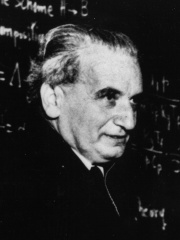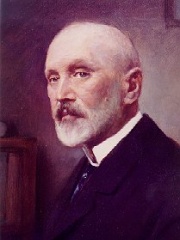

The Most Famous
Engineers from Hungary
Top 2
The following people are considered by Pantheon to be the most legendary Hungarians Engineers of all time. This list of famous Hungarians Engineers is sorted by HPI (Historical Popularity Index), a metric that aggregates information on a biography's online popularity.

1. Theodore von Kármán (1881 - 1963)
With an HPI of 69.49, Theodore von Kármán is the most famous Hungarians Engineer. biography has been translated into 43 different languages on wikipedia.

2. Loránd Eötvös (1848 - 1919)
With an HPI of 68.73, Loránd Eötvös is the 2nd most famous Hungarians Engineer. biography has been translated into 45 different languages.
People
Pantheon has 2 people classified as Hungarians engineers born between 1848 and 1881. Of these 2, none of them are still alive today. The most famous deceased Hungarians engineers include Theodore von Kármán, and Loránd Eötvös.

